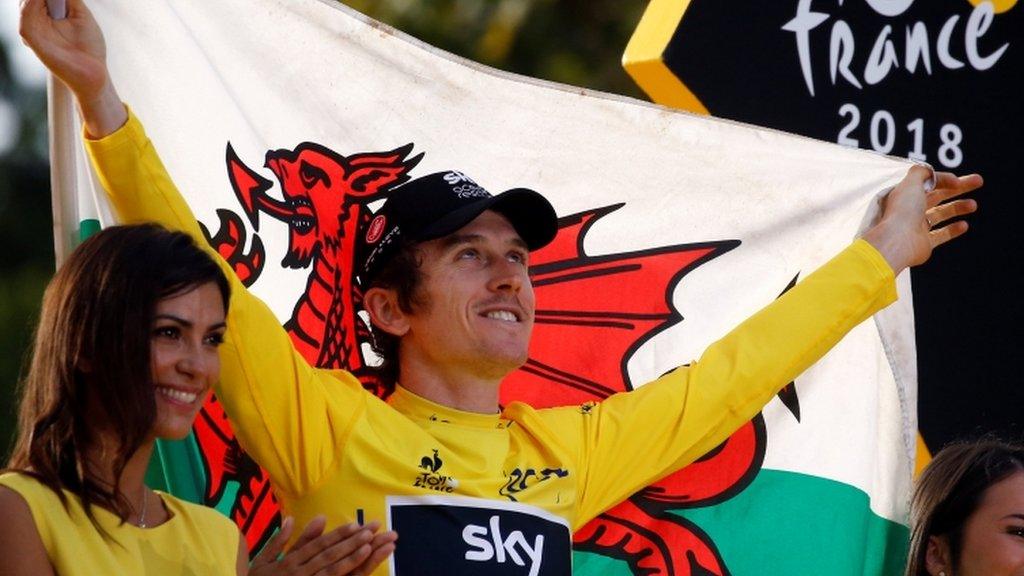The bike riding stars from Wales before Geraint Thomas
- Published
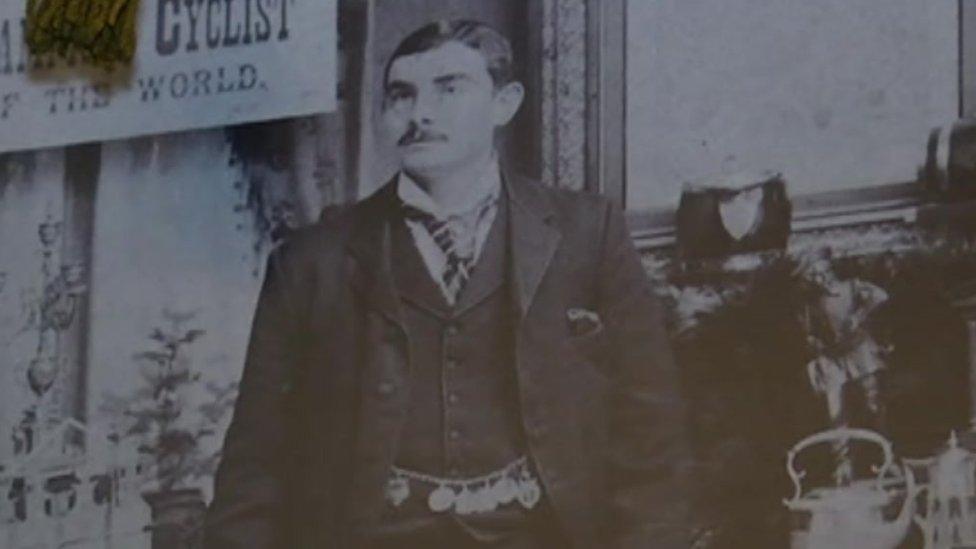
Arthur Linton honed his skills racing against his brothers in Aberaman
After his 2018 Tour de France win, Geraint Thomas has sealed his place in history. But Wales' cycling success dates back a lot further. Not long after the invention of the chain-powered bicycle, the world's finest cyclists came from a small village in the Cynon Valley.

In the 1890s, Aberaman was perhaps best known for its colliery.
But some of the village's inhabitants put the village on the map for different reasons.
Quick to master cycling after a chain was added to the standard bicycle design in 1884, Arthur Linton and Jimmy Michael became international stars.
They travelled the globe, smashing records at a time when the sport of cycling was in its infancy.
More than 100 years later, their stories are largely forgotten.
Arthur Linton was Wales' first cycling trailblazer.
He was not born in Aberaman, but moved there with his family from Somerset aged three.
At the start of his cycling career, his main competitors were his brothers, Samuel and Tom.
"Back at the end of 19th Century there was no such thing as world championships or the Tour de France," historian Stephen Cooke says.
"But Arthur Linton was so fast that he became known as the number one. Even ahead of the French cyclists, who were the best in the world at the time."
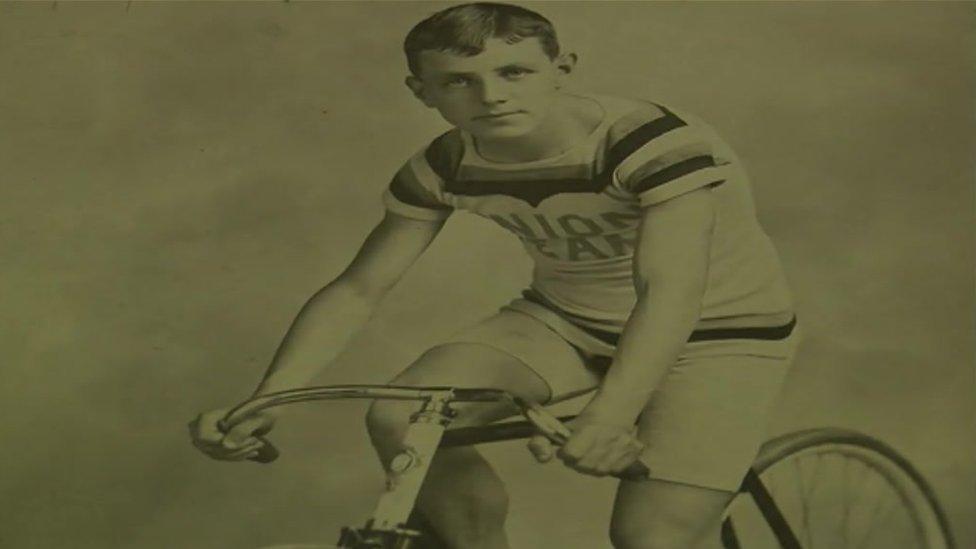
Jimmy Michael was drawn by famous artist and cycling fan Henri de Toulouse-Lautrec
Soon after Linton rose to prominence, his protégé started to challenge him.
Jimmy Michael began cycling in order to carry out deliveries for his family's butchery business.
At just over 5 ft tall, some considered him too short to make an impact in the sport, but he earned himself a reputation as boy wonder in the cycling world.
"Jimmy Michael is renowned as the greatest cyclist ever," Mr Cooke added.
"He really was the superstar of his time. He made a real name for himself especially in America, where he was paid exceptional money to take part in exhibitions.
"But Jimmy will never fill the place of Arthur. Arthur's genial way and excellent riding at home and abroad made him the favourite, of Frenchmen and Englishmen alike, and adored in Wales."
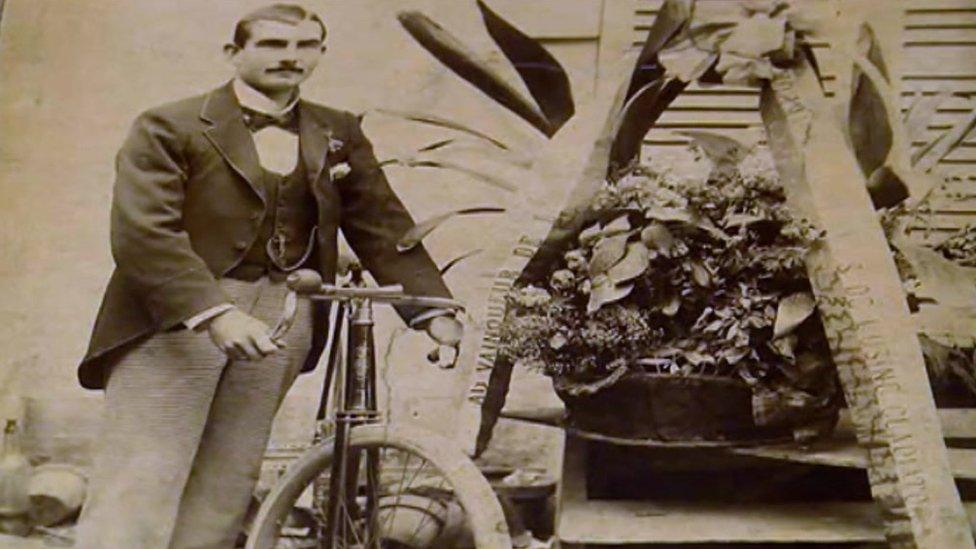
Arthur Linton was feted at home and abroad
Despite dazzling sporting achievements, both Linton and Michael died in their twenties.
A blue plaque at Linton's former home shows he died at 28 of typhoid fever brought on by over-exertion.
His untimely death in 1896 was all the more shocking as he had just won the 360-mile (580km) Bordeaux to Paris race, shaving three hours off the previous record.
Some believe his reputation was sullied by speculation he was under the influence of strychnine, used then as a performance-enhancing drug, at the time of his death.
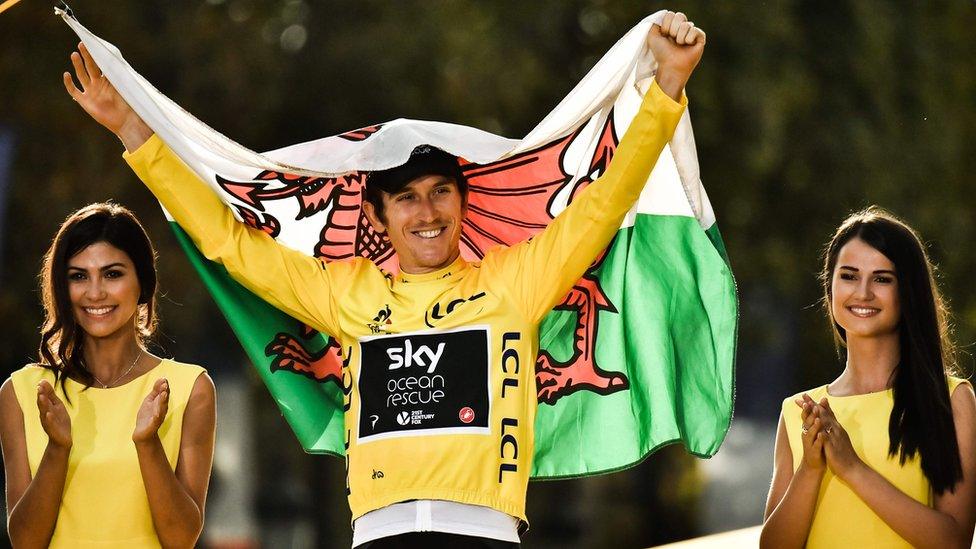
Geraint Thomas - the latest internationally renowned Welsh cyclist
Cyclist Dai Sankey, 81, from Aberdare, believes these rumours are the reason Linton's achievements are not more widely celebrated.
"For his achievements you'd think there would be a statue," he said.
"He was the best in the world. But there's nothing. Linton and Michael have been forgotten.
"Cycling has never got the recognition in this country it deserves."
Perhaps, with Geraint Thomas's success, that might be about to change.
- Published30 July 2018
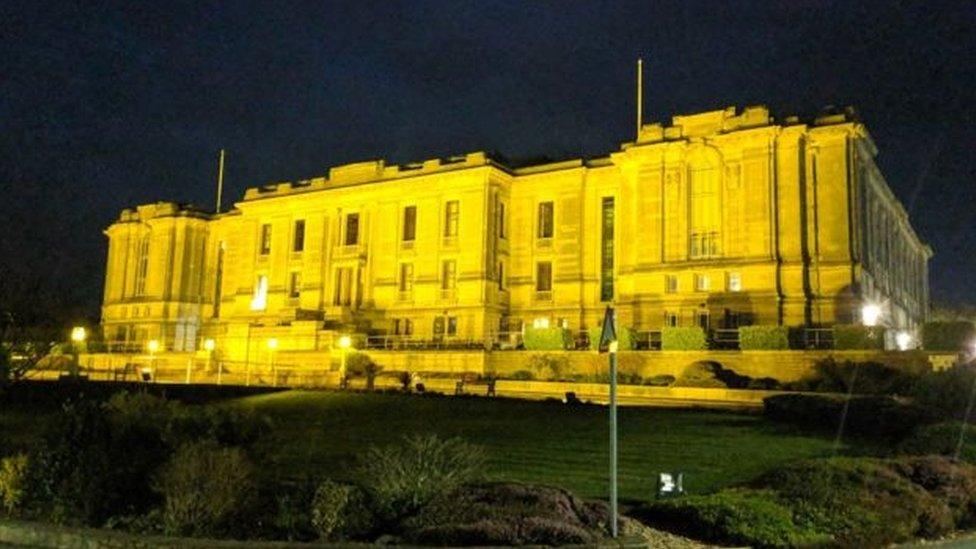
- Attribution
- Published29 July 2018

- Published30 July 2018
